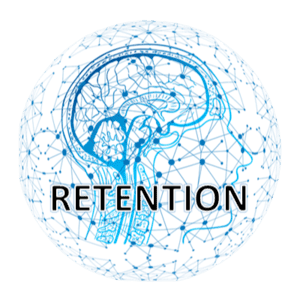Glancemark's
Marketing Methodology
Welcome to Glancemark's Marketing Methodology Page
Glancemark’s ideas and overall thought process describe our methodology. Our methodology has been developed over the period of time and it is the reason for our existence. It is our guiding principle that drives us through the idea of visibility, attention, action, and retention. Our methodology drives our service’s scope through our knowledge, experience, and the market reality.
Aim of Our Marketing Methodology

Visibility
Awareness
We inform and educate your audience about your brand, products, and services and make them recall your existence.
Growth Marketing
The fundamental principle of the formation of our growth marketing agency is to create visibility, grab attention, influence call to action, and ensure retention.

Attention
Consideration
We make your audience realize, experience, and think about your products and services sensibly and seriously.
Core
Value
Our agency’s nature, purpose, and moral obligation lies within this philosophy. This philosophy is a core trait of our agency’s personality.

Action
Conversion
We convince and persuade your qualified leads to subscribe or buy your products and services to improve your cash flow.
Sense of
VAAR
We strongly believe that every publicity campaign must be integrated with a sense of visibility, attention, call to action, and retention.

Retention
Repeat Buyers
We influence your audience’s attitude, behavior, and beliefs so they want to buy more from your products and services store.
Meet Expectations
Exceeding client’s expectations and holding ourselves accountable throughout the complete marketing life cycle is what our philosophy teaches us.
Visibility
How Well Your Business is Seen
Visibility means how well your business is seen on various media channels and aware people about your products and services. In short, it is a state of being present in the online and offline media channels. Visibility helps in keeping your brand on the top of the audience’s mind. Brand visibility is the first step in the customer acquisition process and marketing funnel. There are many brand visibility platforms available today such as search engines, social media, websites, business directories, print media, outdoor media, and broadcast media. Brand visibility ensures a consistent brand identity. By using appropriate online and offline publicity methods we can increase brand visibility and awareness for your business.
02. Interest
Attention
Capturing Audience’s Attention
“Marketing is all about capturing and engaging your audience’s attention”. We all are observing that the average attention span of the audience is getting shorter day by day. Attention span is narrowing because the advertising clutter around them is very high, and a lot of information is presented to them every day. Even the advertisements are competing with the similar products and services surrounding them. Since the audience’s attention is constantly bombarded with a lot of information through various media channels. It is very difficult for brands to capture the audience’s attention and influence them. To overcome this problem, we have started implementing attention-grabbing techniques in all our ad campaigns. Those techniques are helping us in capturing and holding audience attention long enough so that marketing messages can be communicated effectively and easily. We at Glancemark use various online and offline media channels to attract your audience’s attention.

03. Acceptance
Action
Call To Action (CTA) Desired Step
Here the action is referred to as “call to action (CTA)”. A call to action means the next desired step a marketer would want its audience to take after seeing an advertisement. In that case Call to Action (CTA) could be a direct link to a sales page, or subscription page, or product page, or download page, or contact page. CTA encourages and persuades visitors to take specific action on the proposed marketing communication. It is basically an invitation for visitors to take the desired action. CTA is a foundation for marketing success. CTA tells your target audience about what they should be doing next once they have glanced at your advertisement. Examples of CTAs are “BUY NOW”, “SIGN-UP”, “SUBSCRIBE”, “DOWNLOAD”, “VISIT US”, “CALL US”, etc. Within the scope of our services, we use effective CTAs to our client’s advantage. Our CTAs persuade and encourage the audience to follow the desired steps and get excited to know more. We deploy CTAs in such a way that they provoke an immediate response to your ads.

04. Engagement
Retention
Keep Customers Loyal to Your Brand
Retention is nothing but loyalty marketing that develops brand loyalty. It keeps the existing leads base and customers loyal to your brand. Retention refers to qualified leads and existing customers being engaged with your brand. We aim at keeping your customers happy and spending more on you. It is said that “it cost seven times more to attract new customers than it does to retain the existing ones”. Retention encourages brand engagement and repeats purchases. It increases the likelihood of a customer purchase again or leads to getting stick around your products and services. We engage your existing customer to continue buying from your store and gain you referrals to attract new customers. Retention is cheaper to execute than acquisition and improves the bottom line.

It is all about retaining your leads and existing customers. Even if you could retain your 25 to 30% customers or leads it will be considered as a good retention rate. Low retention is a signal of poor customer satisfaction. In order to increase the retention rate organizations should be more transparent to their customers and offer a real value against the product. They should be able to manage customer expectations and deliver more than they have promised. This would encourage customer loyalty and make the brand stay top of the mind.
Get in touch with us in order to test our methodology for your marketing & advertising project. Our team at Glancemark would like to guide you through and explain our VAAR methodology.
